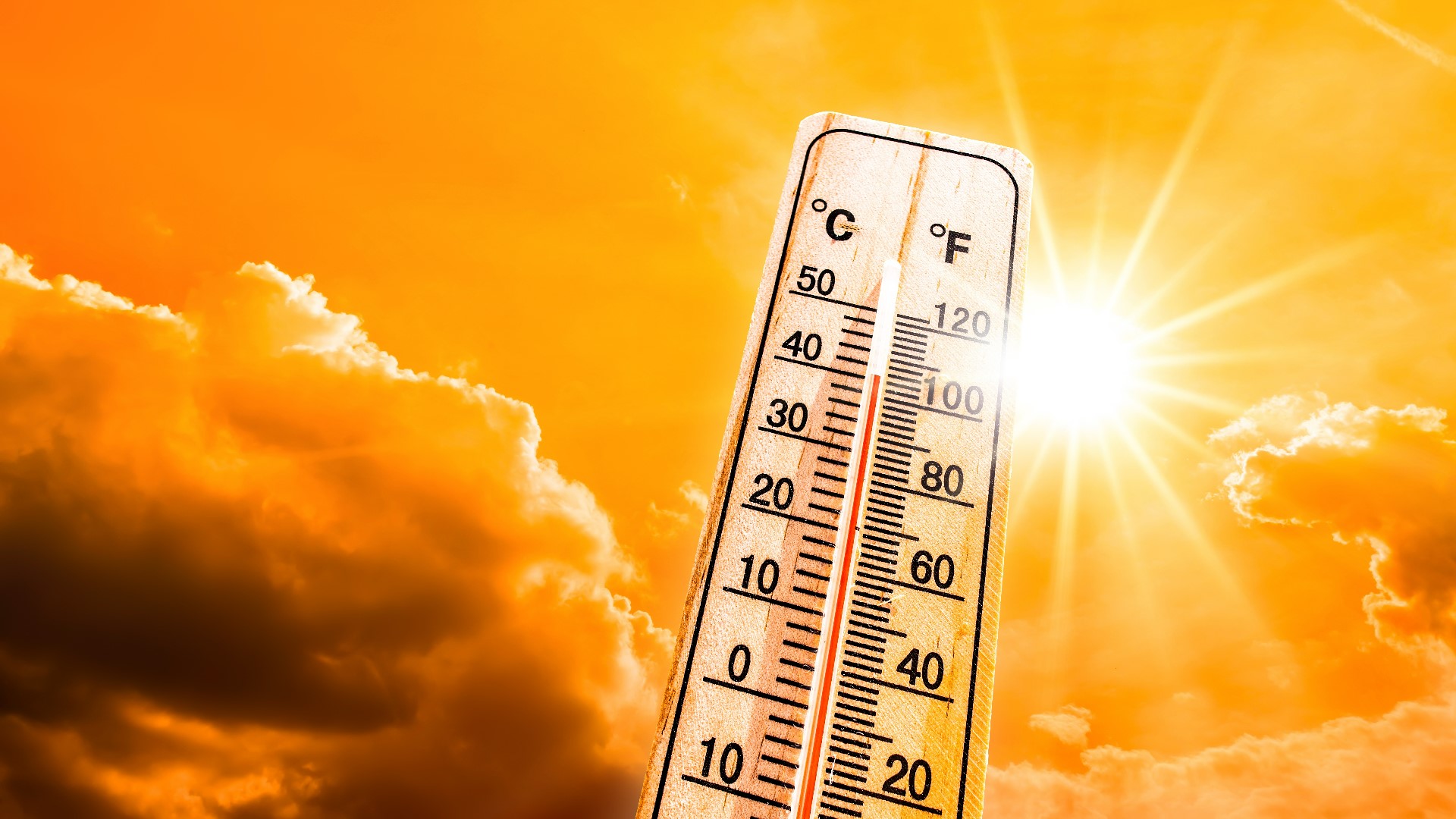HOUSTON — Tripple-digit weather is expected to stick around the Houston area for the next few days, creating a heat wave across the city.
What is a heat wave?
A heat wave is a period of abnormally hot weather generally lasting more than two days. Across Southeast Texas, heat can mean actual air temperatures or heat index values, which is heat and humidity combined.
Heat waves can occur with or without high humidity. They have the potential to cover a large area, exposing a high number of people to dangerous heat. Heat can be very hard on the body. Your heart and kidneys have to work a lot harder with high heat and humidity.
Heat impacts
Extreme heat also impacts our infrastructure from roads and transportation to utilities and food supply.
It can deteriorate and buckle pavement, warp or buckle railway tracks, and exceed certain types of aircraft operational limits.
Electricity usage increases as air conditioning and refrigeration units in homes and offices work harder to keep indoors cooler.
Transmission capacity across electric lines is reduced during high temperatures, further straining the electrical grid.
Water resources are also strained as conventional power plants require large quantities of water for cooling. People also need more water to stay hydrated and cool and crops and vegetation may also require extra water.
Heat can have lasting impacts as crops may be damaged, reducing production which leads to short supply and or increased cost to the farmers and consumers.
What causes a heat wave?
A heat dome is an area of high pressure in the upper levels of the atmosphere that traps the warm air like a lid on a pot.
As it traps the heat, it limits rain from developing which could help to cool us off. We usually see calm winds under high pressure which can also aid in reduced air quality.
Cities suffer from the heat dome the most. Cities or urban heat islands are usually several degrees warmer than surrounding areas and that is all due to the amount of pavement across the area. Too much pavement means not enough grass and trees to help absorb the daylight.
What can you do in a heat wave?
- Slow down. Reduce, eliminate or reschedule strenuous activities until the coolest time of the day. Those particularly vulnerable to heat such as children, infants, older adults (especially those who have preexisting diseases, take certain medications, live alone or with limited mobility), those with chronic medical conditions and pregnant women should stay in the coolest available place, not necessarily indoors.
- Dress for summer. Wear lightweight, loose-fitting, light-colored clothing to reflect heat and sunlight.
- Minimize direct exposure to the sun. Sunburn reduces your body's ability to dissipate heat.
Eating and Drinking
- Eat light, cool, easy-to-digest foods such as fruit or salads. If you pack food, put it in a cooler or carry an ice pack. Don't leave it sitting in the sun. Meats and dairy products can spoil quickly in hot weather.
- Drink plenty of water (not very cold), and non-alcoholic and decaffeinated fluids, even if you don't feel thirsty. If you are on a fluid-restrictive diet or have a problem with fluid retention, consult a physician before increasing the consumption of fluids.
- Do not take salt tablets unless specified by a physician.
Cooling Down
- Use air conditioners or spend time in air-conditioned locations such as cooling centers, malls or libraries.
- Use portable electric fans to exhaust hot air from rooms or draw in cooler air.
- Do not direct the flow of portable electric fans toward yourself when room temperature is hotter than 90°F. The dry blowing air will dehydrate you faster, endangering your health.
- Take a cool bath or shower.
Check on Others
- Check on older, sick, or frail people who may need help responding to the heat.
- Each year, dozens of children and untold numbers of pets left in parked vehicles die from hyperthermia. Keep your children, disabled adults, and pets safe during tumultuous heat waves.
- Don't leave valuable electronic equipment, such as cellphones and GPS units, sitting in hot cars.
- Make sure rooms are well-vented if you are using volatile chemicals.

